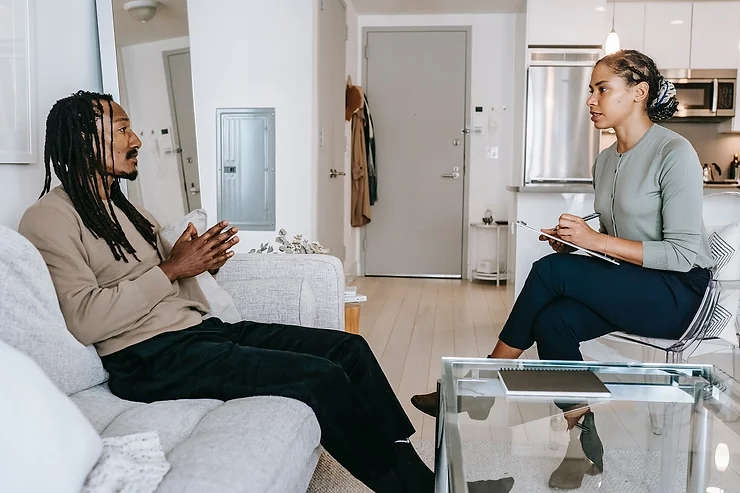If you’re struggling with anxiety, you’re far from alone. Anxiety disorders are among the most common mental health conditions, affecting millions of people every year. And while living with anxiety can feel overwhelming, there are highly effective treatments available—therapy being one of the most powerful tools.
Working with a qualified therapist can help you understand your anxiety, learn to manage symptoms, and reclaim control over your life. Whether you’re facing constant worry, panic attacks, social anxiety, or a combination of symptoms, therapy provides structured support and proven techniques to help you feel better.
Why Choose Therapy for Anxiety?
Anxiety isn’t just “worrying too much.” It’s a complex mental health condition that affects how you think, feel, and act. Therapy helps by addressing these aspects holistically. With guidance from a trained professional, you can:
-
Understand the root causes of your anxiety
-
Identify and reframe negative thought patterns
-
Learn healthier coping strategies
-
Reduce physical symptoms like racing heart or restlessness
-
Build confidence in your ability to handle stress
Even if you feel unsure about opening up to someone, know that therapists are trained to create a non-judgmental, supportive environment. Their goal is to help you heal—not to criticize or diagnose you harshly.
Finding the Right Therapist for Anxiety
Searching for a therapist can feel daunting, especially when anxiety already makes decision-making harder. Here are a few practical steps to help you get started:
✅ Look for Therapists Who Specialize in Anxiety
Most licensed therapists are trained to treat anxiety, but it’s still a good idea to verify that they have specific experience with anxiety-related disorders. You can ask about their background or check their credentials online.
✅ Ask About Their Approach
There are multiple therapeutic approaches proven effective for anxiety treatment, including:
-
Cognitive Behavioral Therapy (CBT): Helps you identify and change negative thoughts and behaviors. This is one of the most researched and successful treatments for anxiety.
-
Exposure Therapy: Involves gradually facing feared situations to reduce sensitivity over time. Especially useful for phobias, social anxiety, and panic disorders.
-
Mindfulness and Relaxation Techniques: Includes breathing exercises, meditation, and grounding techniques to calm the nervous system and reduce stress.
Your therapist may combine several techniques or use an integrative approach tailored to your unique needs.
✅ Consider Your Comfort and Compatibility
Finding a therapist you connect with matters. A good therapeutic relationship can significantly impact your progress. Don’t hesitate to try a few initial consultations to find someone who feels like a good fit.
What to Expect in Anxiety Therapy
Starting therapy can feel intimidating—but that’s okay. It’s normal to question whether you can open up or if therapy will even help. Remember, the process is designed to be gradual and supportive.
Here’s what therapy often involves:
-
Initial assessment: You’ll talk about your symptoms, history, and goals.
-
Goal setting: You and your therapist will decide on treatment goals together.
-
Skill-building: Over time, you’ll learn to challenge anxious thoughts, calm your nervous system, and respond more confidently to anxiety triggers.
-
Progress tracking: Therapy isn’t linear, but you’ll notice improvements in how you think, feel, and behave as you commit to the process.
Therapy Takes Time—And That’s Okay
One of the most important things to remember is that healing is a process. If you expect instant change, you may become discouraged before therapy has had time to work. Your anxiety didn’t develop overnight, and it won’t disappear overnight either.
Many people with anxiety crave control and predictability. That’s understandable. Therapy helps you build tools to tolerate uncertainty and navigate anxiety in more empowering ways. Over time, your therapist can help you:
-
Understand the deeper “why” behind your anxious thoughts
-
Reframe unhelpful cognitive patterns
-
Gain insight into how your anxiety shapes your behavior
-
Learn new ways to manage stress and prevent future relapses
Final Thoughts: You Deserve Support
You don’t have to manage anxiety on your own. Therapy provides a safe, structured space to heal, grow, and build resilience. Whether you’re dealing with general anxiety, panic attacks, or social fears, there is help—and hope.
Taking the first step toward therapy may feel scary, but it’s also one of the most empowering decisions you can make for your mental well-being. With time, patience, and professional support, you can start to feel more grounded, confident, and in control of your life again.


